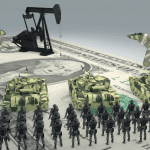Welcome readers! Please subscribe through the button on the right.

Our reading this week is from the book of Luke:
Now there were some present at that time who told Jesus about the Galileans whose blood Pilate had mixed with their sacrifices. Jesus answered, “Do you think that these Galileans were worse sinners than all the other Galileans because they suffered this way? I tell you, no! But unless you repent, you too will all perish. Or those eighteen who died when the tower in Siloam fell on them—do you think they were more guilty than all the others living in Jerusalem? I tell you, no! But unless you repent, you too will all perish.” Then he told this parable: “A man had a fig tree growing in his vineyard, and he went to look for fruit on it but did not find any. So he said to the man who took care of the vineyard, ‘For three years now I’ve been coming to look for fruit on this fig tree and haven’t found any. Cut it down! Why should it use up the soil?’ ‘Sir,’ the man replied, ‘leave it alone for one more year, and I’ll dig around it and fertilize it. If it bears fruit next year, fine! If not, then cut it down.’” (Luke 13:1-9)
No other ancient writing describes the incidents that begin our passage this week. Quite honestly, we do not know what the phrases “the Galileans” or “those on whom the tower in Siloam fell” refer to. The message to the audience, though is one found often in sacred texts: repent or perish.
But repent of what? What about their present course points to self-destruction?
While we have no definite proof of what these two examples are referring to, some scholars connect them to a failed Galilean revolt where Roman soldiers surprised and slaughtered Galilean insurgents as they made sacrifices in preparation for their revolt.
In this week’s story, the religiopolitical elite question whether the people revolting had been morally upright or whether their sinfulness was to blame for their lack of success. Jesus says to them, “Do you think that because these Galileans suffered in this way they were worse sinners than all other Galileans? No, I tell you; but unless you repent, you will all perish as they did.”
Similarly, a few scholars identify the tower of Siloam as a tower where Rome stored its weapons. Galilean insurgents might have tried to dig a tunnel under the tower to seize the weapons for a violent revolt. But the tunneling compromised the tower’s foundation, the entire structure suddenly collapsed, and several of these Galileans died. Jesus again denies they are responsible for their deaths: “No, I tell you; but unless you repent, you will all perish just as they did.”
When Jesus calls for repentance in our story, I don’t hear the moralistic idea of repentance so many of us are used to today. I hear a Jewish prophet of the poor calling for social change.
I’ll explain why, next.














